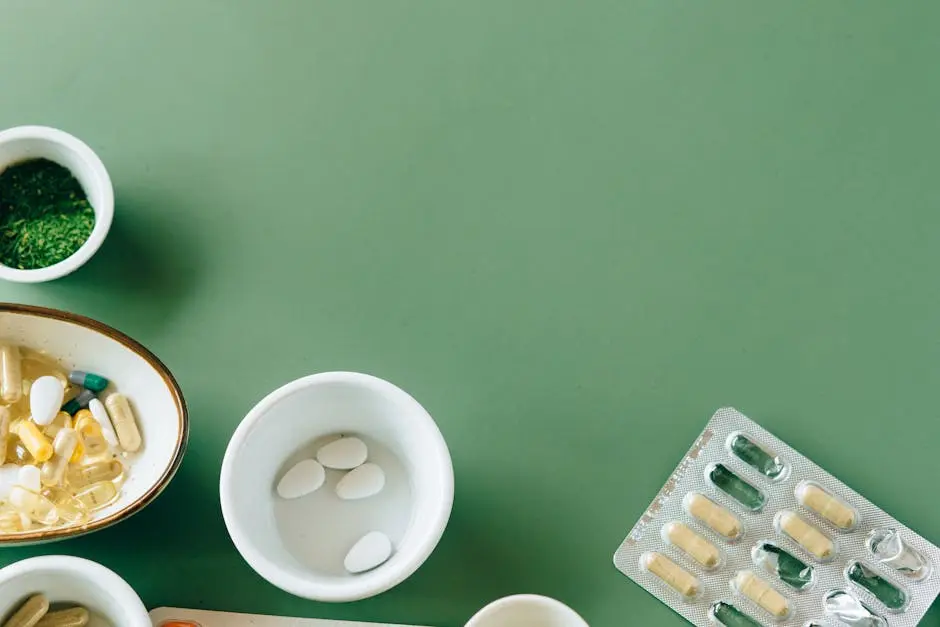In today’s fast-paced world, many of us are searching for ways to enhance our health and longevity. Supplements often promise to aid in self-preservation, but do they really contribute to long-term well-being? In this blog, we’ll explore the potential role of supplements in supporting a healthy, sustainable lifestyle and overall self-preservation.
Understanding Self Preservation
Self preservation refers to the habits and practices that protect our health and promote longevity. This section will delve into the core components of self preservation and why it matters.
At its essence, self preservation encompasses behaviors ranging from diet to exercise. By prioritizing these practices, we not only enhance our physical health but also strengthen our mental and emotional well-being.
The choices we make daily—what we eat, how we move, and how we manage stress—all contribute to our ability to thrive over the long term. In this sense, self preservation is more than just a buzzword; it’s a vital approach to living well.
Moreover, in an era where chronic diseases are on the rise, understanding self preservation becomes increasingly critical. It’s about adopting a proactive stance towards health, making informed choices that yield benefits for years to come.
Common Types of Supplements
Explore various types of supplements available in the market, including vitamins, minerals, and herbal products, and their purported health benefits.
Vitamins and minerals, the most common types of supplements, can help fill nutritional gaps. For example, Vitamin D and Calcium are crucial for bone health, especially as we age. Deficiencies can lead to serious health issues, making supplementation a proactive choice.
Herbal supplements, ranging from turmeric to ashwagandha, have gained popularity for their potential anti-inflammatory and adaptogenic properties. These natural alternatives often complement our diets, promoting resilience against stress and boosting overall vitality.
However, it’s essential to remember that not all supplements are created equal. Quality matters. Always look for third-party testing and reputable brands to ensure safety and efficacy.
Additionally, understanding your body’s unique needs can guide supplement choices. For someone with a specific health condition, targeted supplements may be more beneficial than a one-size-fits-all approach.
Scientific Evidence on Supplements
Review the latest research and studies regarding the effectiveness of supplements in contributing to long-term health and self-preservation.
The scientific landscape surrounding supplements is vast and complex. Studies often yield mixed results, which is why it’s imperative to approach supplementation with a balanced perspective. While some research supports the use of specific supplements, others reveal limited benefits.
For instance, Omega-3 fatty acids have garnered considerable attention for their role in heart health. Many studies suggest they may help lower the risk of cardiovascular diseases, which aligns well with the principles of self preservation.
Conversely, some antioxidants may not exhibit the health benefits once thought to be associated with them. This reflects the necessity of continuous research in the field of nutrition and health, as our understanding evolves.
So, are supplements a magic bullet for self preservation? The answer remains nuanced. They can aid health but should not replace foundational aspects of nutrition and lifestyle.
Supplements vs. Whole Foods
Discuss the differences between obtaining nutrients from whole foods versus supplements, and the importance of dietary sources for holistic health.
While supplements can be beneficial, nothing replaces the nutritional power of whole foods. Whole foods provide a myriad of nutrients, fiber, and phytonutrients that supplements simply can’t replicate.
For instance, an orange offers vitamin C, but it also delivers antioxidants, hydration, and natural sugars that fuel the body. In contrast, a vitamin C pill lacks the holistic benefits found in the fruit itself.
Moreover, whole foods foster a sense of satisfaction and pleasure that enhances the eating experience. Cooking and sharing meals is a fundamental part of human connection—an aspect often missing when relying solely on pills.
Ultimately, while supplements can complement a healthy diet, they should not replace the rich diversity of nutrients found in whole foods. A combination of both may serve our goals of self preservation best.
Consulting with Healthcare Professionals
Emphasize the importance of discussing supplement use with healthcare providers to tailor choices based on individual health needs and conditions.
Navigating the world of supplements can feel overwhelming, but you don’t have to do it alone. Consulting with healthcare professionals is crucial for making informed decisions that align with your health goals.
Doctors, nutritionists, and dietitians can provide personalized guidance based on your medical history and current health status. They can also help identify any potential interactions with medications, ensuring that your self-preservation journey is both safe and effective.
Additionally, regular check-ins with a healthcare provider allow you to assess how well a supplement is working for you. Our bodies evolve, and what may be beneficial today might change over time.
In conclusion, expert advice can demystify the supplement landscape, allowing you to make choices that truly enhance your overall well-being.
Final Thoughts on Supplements and Self Preservation
While supplements can play a supportive role in our health journey, they are not a silver bullet. A balanced diet, regular exercise, and a healthy mindset are essential components of long-term self-preservation. Use supplements wisely, and consult with a healthcare professional to ensure they fit into your holistic approach to health.



